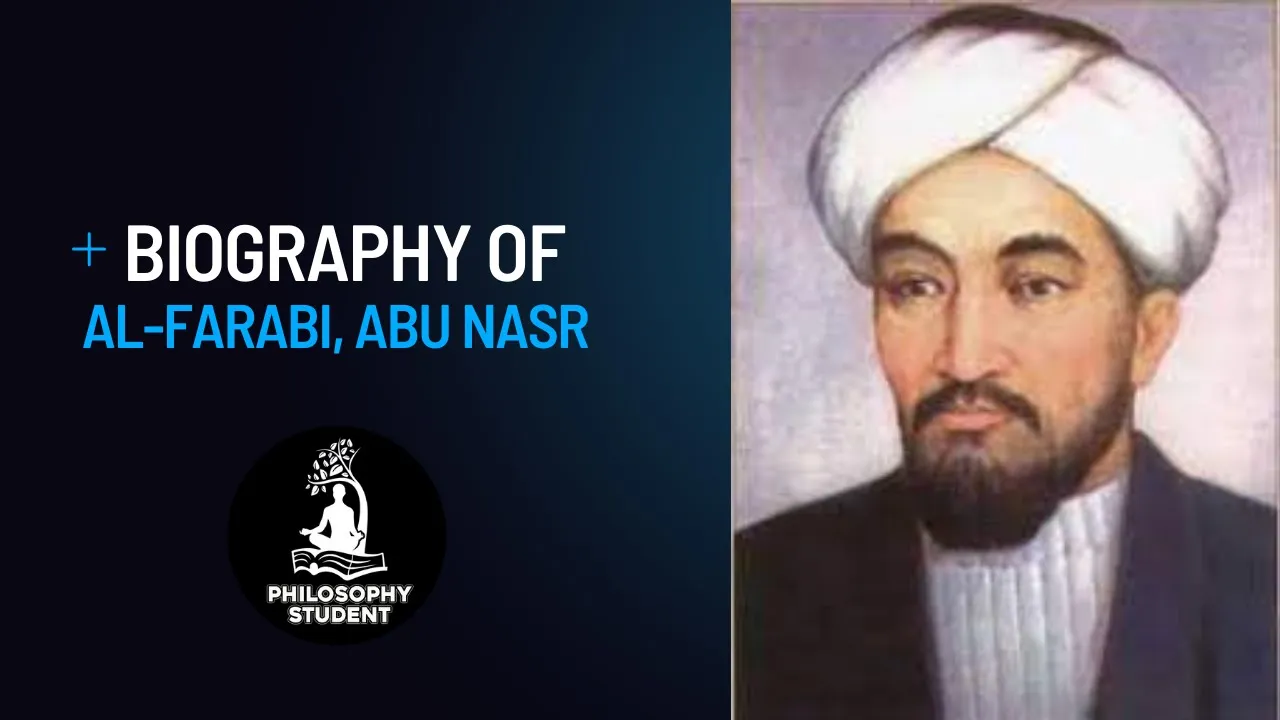Born about 872 either in Farab (in present-day Kazakhstan) or Faryab (in modern Afghanistan), Abu Nasr al-Farabi was a jurist and one of the earliest of Islamic philosophers. He wrote on language, music, political philosophy, metaphysics, ethics, and logic. In addition, he was a mathematician, scientist, and alchemist. As a philosopher, he was (and remains) revered in the Islamic world as the “Second Teacher” (Aristotle being known throughout the medieval realms of Islam as the First Teacher).
His original contributions in metaphysics, epistemology, ethics, and politics influenced the likes of Avicenna and Maimonides, but, arguably, his greatest contribution to philosophy in the Middle East was his collecting and preserving original Greek philosophical texts.
Little is known about Al-Farabi’s life. It is believed, however, that he lived longest in Baghdad, sojourning in Damascus and in Egypt before returning to Damascus, where he died about 950 or 951.
One of Al-Farabi’s most influential works, Enumeration of the Sciences, contains his analysis of language, including grammar and metrics. His Great Book of Music discusses the relationship of music to language, arguing that music serves to enhance the meaning of speech. Indeed, Al-Farabi recommended that rulers should learn to exploit the power of music to enhance the spoken word and thereby amplify the influence of their eloquence upon the people.
From language, Al-Farabi proceeded to an analysis of logic, which he built mainly on an Aristotelian foundation, with an emphasis on the application of logic in metaphysics and ethics. He showed himself especially interested in how language enables logic to treat the future through “contingents.” Al-Farabi navigated a narrow course between predetermination and freewill. As an Aristotelian, he advocated the demonstration of theoretical assumptions based on empirical observation.
Al-Farabi studied mathematics and, from it, derived his view of physics and the other natural sciences. He rejected the idea of a vacuum, and he expanded upon Aristotle’s views of the function of human organs to argue that the hierarchical structure of those organs reflects a cosmological hierarchy that should be emulated in any plan for creating an ideal state.
From physics, Al-Farabi leapt to metaphysics, which he provocatively defined not as a quasi-theological enterprise but as an investigation into precisely what all living beings have in common. Al-Farabi also sought to outline the relation of logic to metaphysics and, in so doing, to apply both logic and metaphysics to political philosophy as it relates to the hierarchical structure of the state. Indeed, it is characteristic of Al-Farabi that he almost always sought to apply philosophy, metaphysics included, to politics, government, and society. In this, he was influenced both by Aristotle and Plato, emphasizing (in emulation of The Republic) that philosophy must be both theoretical and practical. Those thinkers who remained in strictly theoretical realms Al-Farabi dismissed as “futile philosophers.”
He saw the role of philosophy as guiding the creation of an ideal state, whose objective was the realization of “happiness,” by which he principally meant rational enlightenment. The philosopher, Al-Farabi argued, has a responsibility to minister to the health of society much as a physician ministers to the health of his patient. Comparing an immoral society to a human being suffering from an imbalance of humors, Al-Farabi wrote that the duty of the philosopher is to heal the unbalanced souls of society’s members to establish balance and justice, thereby leading the society to “true happiness.” Al-Farabi died in Damascus abou
He saw the role of philosophy as guiding the creation of an ideal state, whose objective was the realization of “happiness,” by which he principally meant rational enlightenment. The philosopher, Al-Farabi argued, has a responsibility to minister to the health of society much as a physician ministers to the health of his patient. Comparing an immoral society to a human being suffering from an imbalance of humors, Al-Farabi wrote that the duty of the philosopher is to heal the unbalanced souls of society’s members to establish balance and justice, thereby leading the society to “true happiness.” Al-Farabi died in Damascus about
He saw the role of philosophy as guiding the creation of an ideal state, whose objective was the realization of “happiness,” by which he principally meant rational enlightenment. The philosopher, Al Farabi argued, has a responsibility to minister to the health of society much as a physician ministers to the health of his patient. Comparing an immoral society to a human being suffering from an imbalance of humors, Al-Farabi wrote that the duty of the philosopher is to heal the unbalanced souls of society’s members to establish balance and justice, thereby leading the society to “true happiness.” Al-Farabi died in Damascus about 950.His great popularity in his own time resulted in a degree of preservation of his works that is rare in the early Middle Ages. In the West, philosophers are just beginning to translate and study many of Abu Nasr al-Farabi’s surviving writings.




































